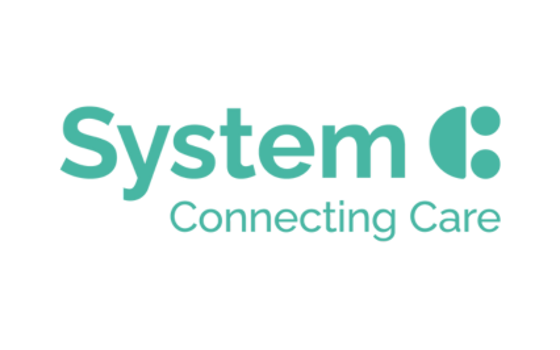 System C is close to completion on its £200m five-year investment programme in the Medway EPR, a patient management and electronic patient record system designed and built specifically for the NHS. The company is preparing for the nationwide launch of CareFlow EPR at three virtual events in February, March, and April 2022, with live demonstrations and learnings from those pioneering the use of the new system.
System C is close to completion on its £200m five-year investment programme in the Medway EPR, a patient management and electronic patient record system designed and built specifically for the NHS. The company is preparing for the nationwide launch of CareFlow EPR at three virtual events in February, March, and April 2022, with live demonstrations and learnings from those pioneering the use of the new system.
CareFlow is a full clinical and administration system that can handle every aspect of patient care, safety, and flow - including e-observations, care planning, ordering, theatre management, clinical collaboration, orders and results, clinical narrative, noting, patient administration systems (PAS), maternity care, contact management, emergency care, medicines management, remote patient monitoring/virtual wards and more. The solution is built around the requirements of NHS Trusts and users and functionality, useability, interoperability, and customer service have all been prioritised. Investment is continuing to increase in line with the expanding user base.
CareFlow has already had the stamp of approval from 29 Trusts, with 165,000 staff managing 15m outpatient, inpatient and day case activities a year. All sites are being offered the extended functionality and early adopters, Whittington Health NHS Trust and St Helens & Knowsley Teaching Hospitals NHS Trust, are presenting their progress at events in February and March. People wishing to participate can register at systemc.com/events.
CareFlow is part of the System C & Graphnet Care Alliance, which brings together System C, Graphnet, Liquidlogic, CareFlow Medicines Management and Docobo. It is the only UK IT supplier with experience across health, social care, shared care records and population health. This means that EPR data can be shared with regional care records seamlessly and cost-effectively. In addition to that, the Alliance’s strength in remote patient monitoring means patient data can be uploaded into the EPR from home and care home settings and enables the creation of virtual wards.
Other benefits from early adopters, such as University Hospitals Bristol, Whittington Health, North Middlesex, St Helens & Knowsley, University Hospitals of North Midlands, and Kettering, include:
- Saving significant hours of clinical time
- More patient facing clinical interactions with patients
- Preventing readmissions and ensuring reduced Length of Stay is achieved
- Protecting patient health through early detection of deterioration
- Reducing mortality rates.
- Improving patient safety by reducing harm via reduced ADEs (adverse drug events)
- Preventing cardiac arrests.
Whittington Health NHS Trust was one of the first to implement the CareFlow EPR solution. Whittington Health CCIO, Sam Barclay, commented: "When we embarked on this journey, it was about far more than the products and solutions. We were signing up for whole system change for the better, safer care of the patients that we serve. It is clinical transformation that is digitally enabled. We're now able to securely access and communicate patient details faster and easier, with the help of platforms like CareFlow Connect and Workspace. It has enabled us to adopt a more holistic view of the people that we’re treating, so we can provide them with the best management plan possible."
Markus Bolton, joint chief executive of System C said: "The NHS is a unique organisation with an enormous responsibility on its shoulders. There are at least 1.5 million patient interactions every day, free at the point of delivery. Because of this, it requires solutions that are built around the way that it works. System C has been collaborating closely with its customers to design and build such systems, delivering solutions which support true mobile working through smart phones and tablets, patient flow, closed loop prescribing, integration between health and social care and integrated virtual wards, home monitoring/remote patient care.
"The integration with Graphnet’s shared care records and population health solutions is also supporting a wide range of ICS level prevention and treatment programmes such as for hypertension, diabetes, suicide prevention, frailty, and management of cardiac patients.
"We are also closely aligned to NHS needs for deployment. The majority of systems go live within 12 months of contract, and we specialise in deploying solutions efficiently with small and fast-moving teams that allow systems to be deployed with a minimum of disruption to patient care."
Joint CEO Ian Denley said: "System C bases its business on long term partnerships with NHS Trusts and colleagues and some of our customers have been working with us for over 30 years. We are a supplier dedicated to serving the NHS and Trusts can be confident of continued NHS-focussed development and long-term support. Fostering long-standing partnerships based on trust and loyalty, is of the utmost importance to us."
For more information on the launch and to register for the virtual events, please visit: https://systemc.com/events
About the System C & Graphnet Care Alliance
The System C & Graphnet Care Alliance brings together five of the UK’s most innovative and experienced providers of integrated IT solutions for the health and social care market: System C, Graphnet, Liquidlogic, Docobo, and CareFlow Medicines Management. It exists to help provide the answer to the British health and care system's most pressing issues.The Care Alliance is the only UK IT supplier that can provide an end-to-end package to ICSs, covering the entire health and social care community. Data-driven solutions help ICSs, trusts and the NHS tackle health inequalities, reduce hospital admissions, join-up health, and social care, provide better patient access, prevent major health issues, and solve the waiting list problem.
The Care Alliance has the fastest growing share of the acute market and the largest market share in child health, social care, shared care, and population health.